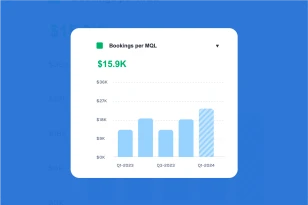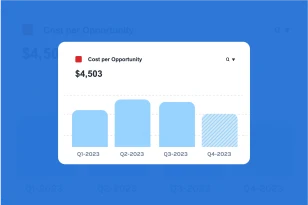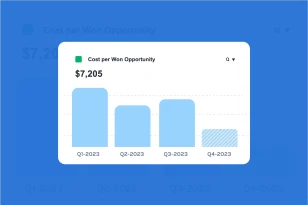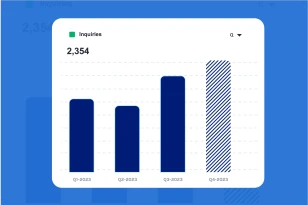What is Cost per MQL?
Cost per MQL (Marketing Qualified Lead) is a vital marketing metric that calculates the average cost incurred for generating each Marketing Qualified Lead within a marketing campaign or initiative. An MQL represents a lead who has been assessed by marketing and deemed as a potential sales opportunity, showing a level of interest or engagement with your products or services.
Why is it important to monitor Cost per MQL?
Monitoring the Cost per MQL is of paramount importance for marketing teams as it provides a clear picture of the efficiency and cost-effectiveness of their lead generation efforts. By understanding how much it costs to acquire and qualify each lead, marketing professionals can make data-driven decisions regarding budget allocation, resource management, and the optimization of lead generation strategies. This metric offers valuable insights into the return on investment (ROI) for marketing campaigns.
How do you calculate Cost per MQL?
Calculating Cost per MQL is relatively straightforward and involves dividing the total costs of a marketing campaign by the number of MQLs generated.
Cost per MQL Formula
Total Marketing Campaign Costs / Number of MQLs generated
How can I improve Cost per MQL?
- Targeted Audience: One of the fundamental ways to enhance Cost per MQL is to ensure that your marketing campaigns are laser-focused on the right audience. This means aligning your campaigns with your ideal customer profile to increase the likelihood of generating qualified leads.
- Channel Optimization: Continuously assess the performance of various marketing channels and allocate resources to the most cost-effective ones. By monitoring the channels that deliver the best results, you can make informed decisions about where to invest your budget.
- Conversion Rate Optimization: Improving the conversion rates on your landing pages and lead generation forms is a powerful method to generate more MQLs with the same budget. Small adjustments to design, copy, and user experience can have a significant impact.
- Lead Scoring: Implementing a lead scoring system allows you to identify and prioritize the most promising leads. This enables you to focus your resources on leads that are more likely to convert into customers, thus improving the cost-efficiency of your marketing efforts.
- A/B Testing: Experimenting with different campaign elements, such as ad copy, images, and call-to-actions (CTAs), can help you identify what resonates best with your target audience and can significantly enhance conversion rates.
By consistently monitoring and optimizing your Cost per MQL, you can not only reduce marketing costs but also drive higher-quality leads, ultimately contributing to the growth and success of your business.




